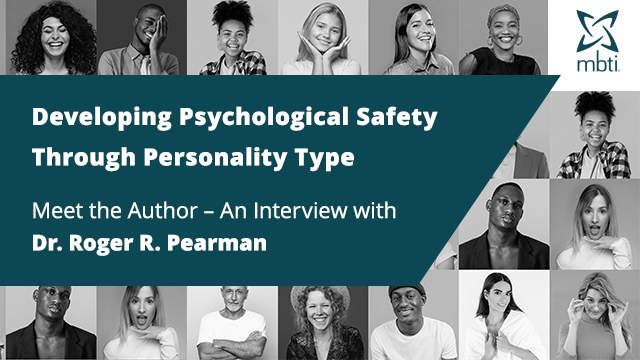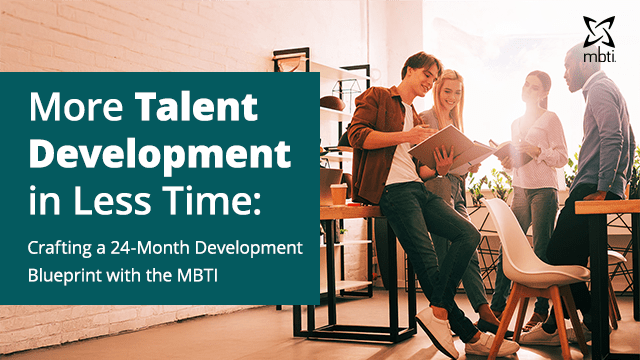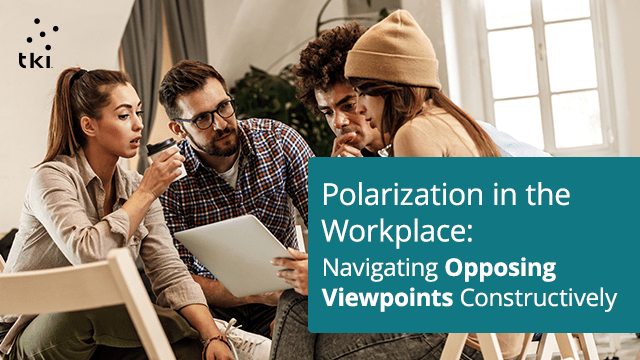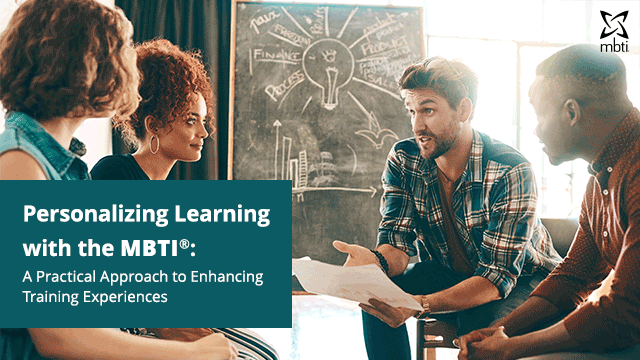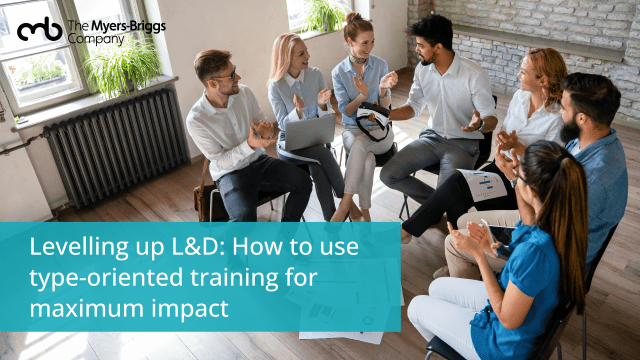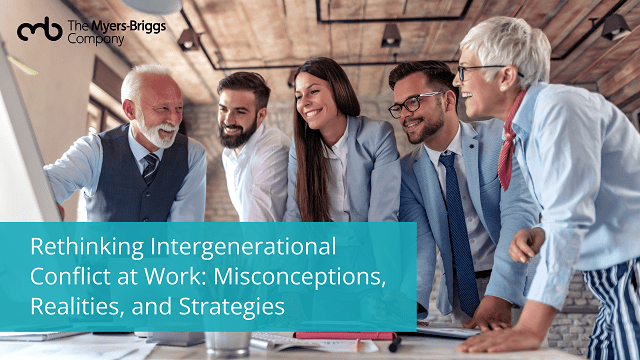Webinars
Register for our upcoming webinars and watch our recordings
Choose from topics ranging from executive leadership training, to team building and career development.
Meet the Author – An Interview with Dr. Roger R. Pearman on his latest whitepaper
If you enjoyed the paper Developing Psychological Safety Through Personality Type, don’t miss this opportunity to go deeper. Join us for an exclusive conversation with author Dr. Roger R. Pearman as we explore the key themes of his work. Through real-life stories and practical examples, Dr. Pearman will expand on how personality type awareness can be used to create more psychologically safe environments at work.
More Talent Development in Less Time: Crafting a 24-Month Development Blueprint with the MBTI
Discover how the MBTI® Personal Impact Report can build a scalable, soft skills development program with practical strategies for both group and individual growth—ideal for talent developers seeking impactful, repeatable training solutions.
Polarization in the Workplace: Navigating Opposing Viewpoints Constructively
In today's workplace, polarization can take many forms, from debates over company policies to disagreements in team projects. Discover how conflict management training can help employees navigate these challenges.
Personalizing Learning with the MBTI®: A Practical Approach to Enhancing Training Experiences
Discover how the MBTI Personal Impact Report (PIR) can help personalize learning in a way that scales effectively.
Levelling up L&D: How to use type-oriented training for maximum impact
A one-size-fits-all approach to L&D overlooks the diverse needs and preferences of individual employees. Learn how to leverage differences to drive performance.
Rethinking Intergenerational Conflict at Work: Misconceptions, Realities, and Strategies
Today’s workforce includes up to five generations and research shows that stereotypes often drive intergenerational conflict. Join us to find ways to enhance a multigenerational workplace.
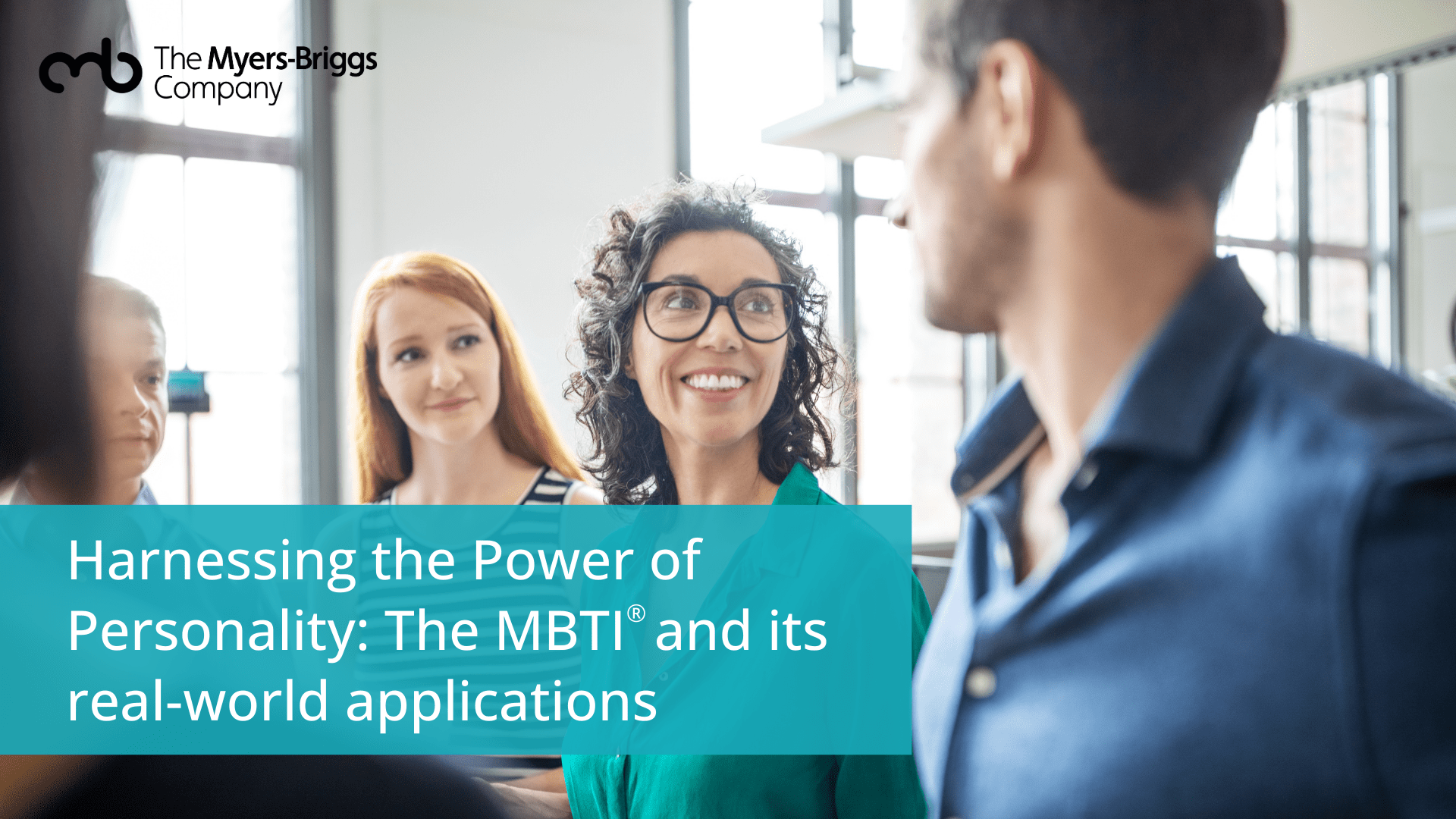
Harnessing the power of personality: The MBTI® and its real-world applications
Time and money are tighter than ever within organizations. Hear real-world examples from diverse industries on how the MBTI® boosts performance.
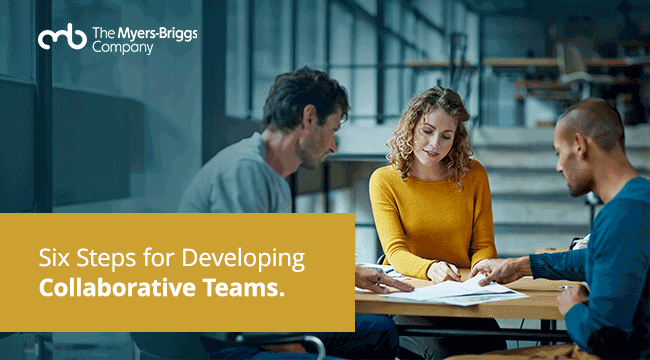
Six Steps for Developing Collaborative Teams
How often have you seen a team's outcome fall short? Challenges arise when team members struggle to collaborate effectively. Find out how teams can harness "real" collaboration.

Unlocking Success: Why Durable Skills Matter More Than Ever
Want to empower your employees to excel in interactions, thrive in dynamic environments, and adapt to new challenges? Explore the importance of durable skills in today’s workforce.

Navigating Hard Conversations with Managers, Peers, and Direct Reports
Looking to turn difficult conversations into positive outcomes? Learn proven ways to help people of all levels engage effectively.

The Skilled Leader: Developing a Human-Centric Approach
What makes a great leader for the demands of today's workplace? A greater emphasis on human skills across leaders at all levels will help organisations foster more engaged, innovative, and productive workforces.

The Psychology of Teams: Illuminating the hidden factors of high-performing teams
How can you help teams get the best from their collaboration? The most successful teams are aware of (and comfortable with) exploring the dynamics that affect how they work together.
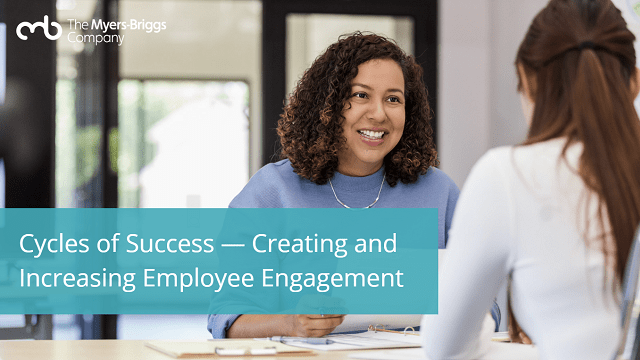
Cycles of Success – Creating and Increasing Employee Engagement
Do you know what potential candidates are seeking? And how do you retain top talent in your company?
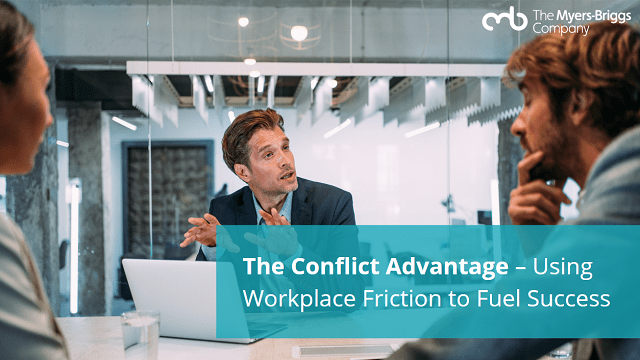
The Conflict Advantage – Using Workplace Friction to Fuel Success
Is conflict always hurtful? What if you considered conflict positive and learned how to use it as a tool to energize conversations?
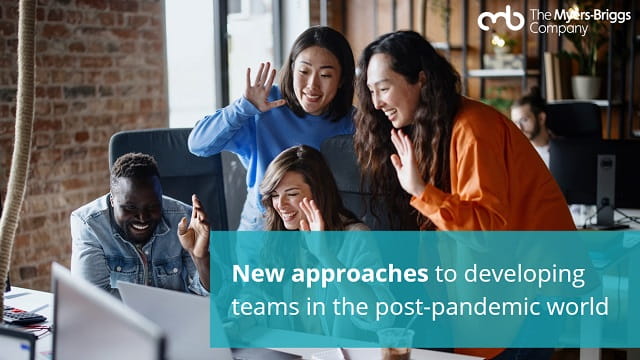
New approaches to developing teams in the post-pandemic world
Teams are operating in new ways, but has it changed training? Join us to hear how and why our Professional Services team approach things differently.
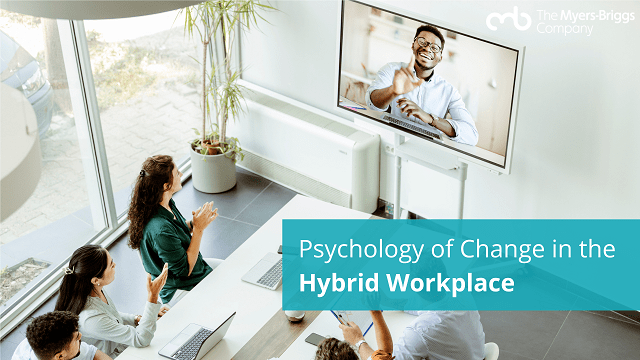
Psychology of change in the hybrid workplace
Change is hard, inevitable, and disruptive. How can you use psychology to better equip your people to deal with, and even thrive, during changes?
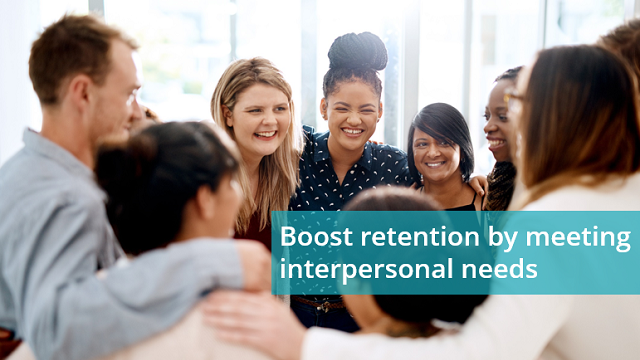
Boost retention by meeting interpersonal needs
Research shows employees who feel more included have a higher level of well-being. This doesn’t just increase the desire to stay in the team, but has a knock on effect for boosting performance too. Bonus! But what makes us feel included? And how do we know what the interpersonal needs of our team are to make sure we are connecting at the right level?
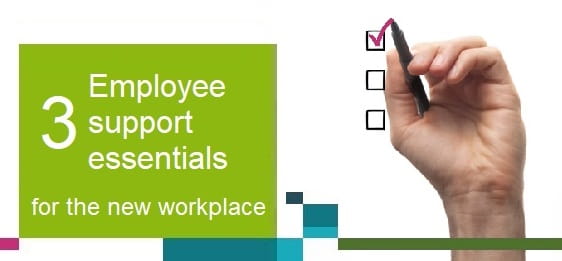
3 employee support essentials for the new workplace
As employees re-evaluate their expectations of work and their workplace, organizations need to realign work practices to better support their people.
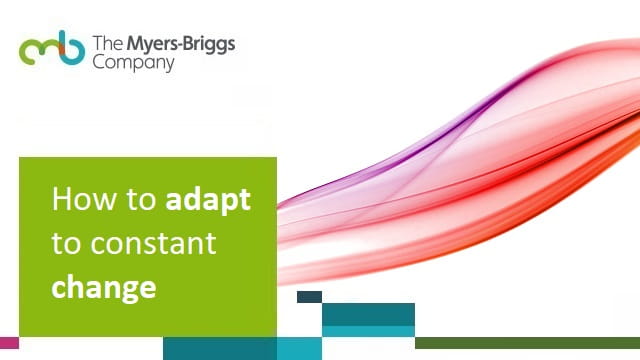
How to adapt to constant change – especially in the workplace
We’re living in volatile, fluctuating times. Some people are working from home, some have gone back to the office, some are uncertain about the future, and many have a new ‘hybrid’ workstyle. But whatever your new work pattern, your personality type will always affect what you find stressful, and what strategies you’ll find effective.
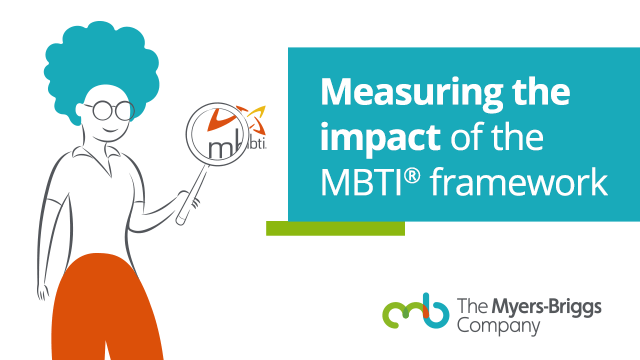
Measuring the impact of the MBTI® framework
How do you answer the question: Does using the MBTI framework make a real difference?
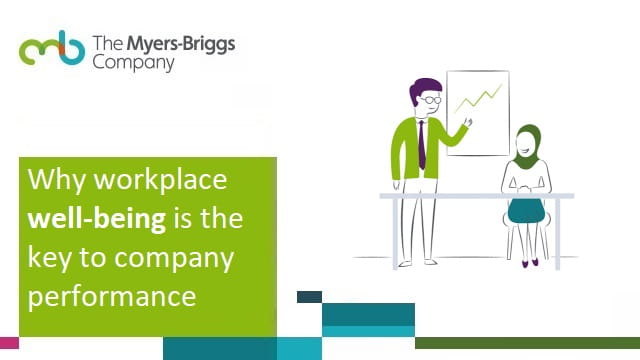
Why workplace well-being is the key to company performance
How does employee well-being impact your company’s success? Our research examined performance and well-being measures, and the correlations we found were incredible. Not only did they relate to organizational performance but also to employee retention.
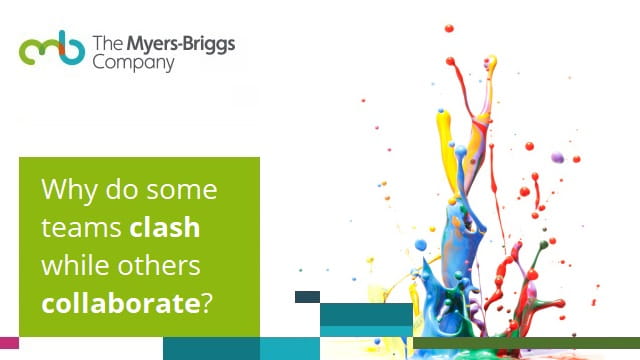
Why do some teams clash while others collaborate?
Aimed at people who are new to the MBTI, we will look at research showing that teams with a diverse mix of personalities are more effective. The catch: diverse teams can also experience more misunderstanding and conflict.
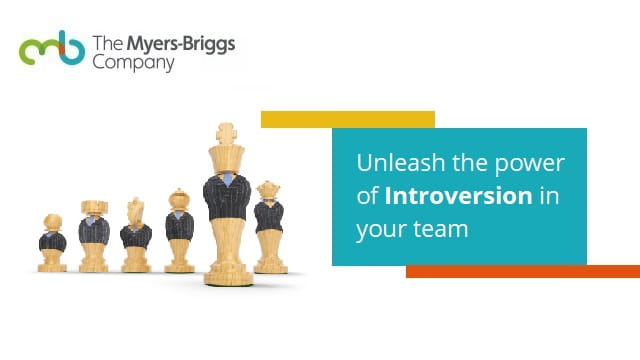
Unleash the power of Introversion in your team
All leaders want to unlock their team’s full potential. However, not all leaders know that the approach to unlock potential in Introverted team members is different than for Extraverted team members.
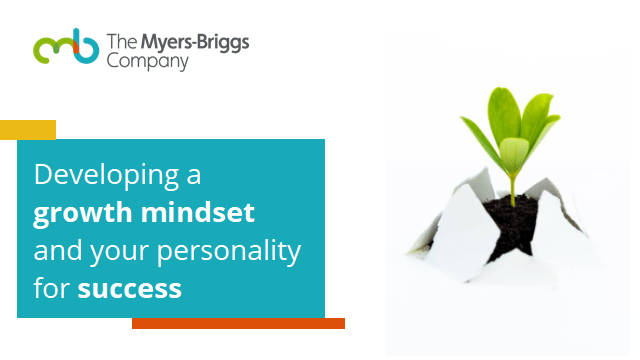
Developing a growth mindset and your personality for success
Having and fostering a “Growth Mindset” in the workplace leads to improved performance and outcomes for organizations, teams and employees. A Growth Mindset can also support development of our personality.
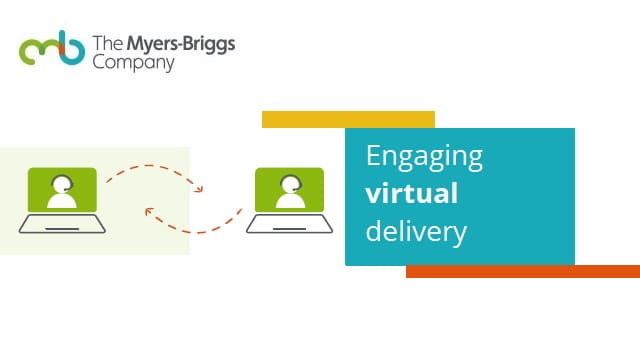
Engaging virtual delivery
Connecting with your audience through a screen is more difficult than it seems. Though switching from an in-person presenter to a virtual presenter may have its challenges, we've got you covered.
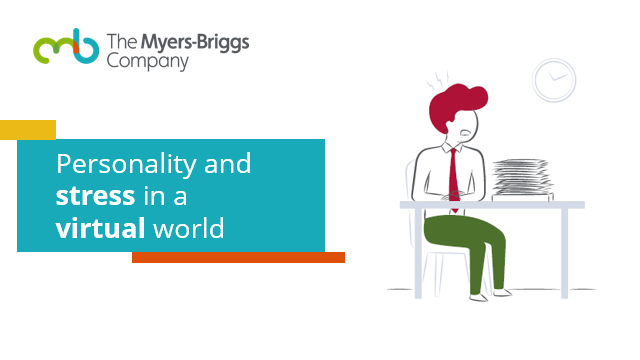
Personality and stress in a virtual world
John Hackston, Head of Thought Leadership, has been gathering your stresses and concerns during the Coronavirus crisis, and he’ll be sharing how these relate to MBTI personality type.
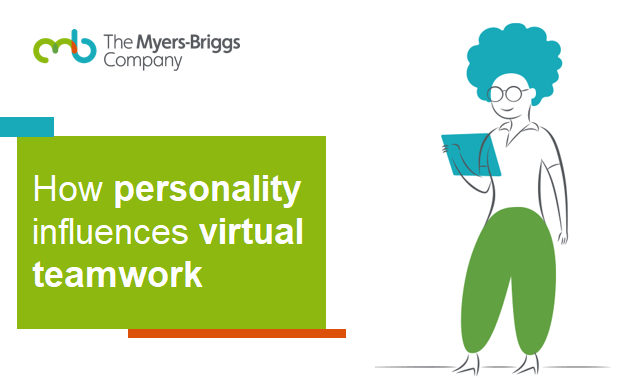
How personality influences virtual teamwork
While for many virtual working from home every day is the norm, for the vast majority this is a new experience. Helen Rayner, Lead Consultant at The Myers Briggs Company has undertaken research to explore the perceptions of working in virtual, co-located and combined teams and the impact it has on teamwork.
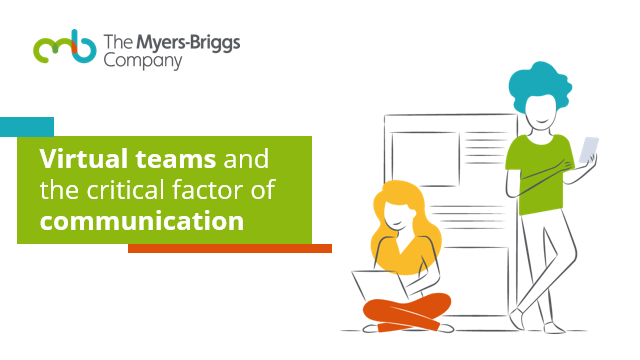
Virtual teams and the critical role of effective communication
While we adjust to virtual teams becoming the norm in many organizations, managers and senior leaders are finding it increasingly urgent to focus on the impact of virtuality on team communication.

Building trust in teams
What’s the role of trust in the workplace?
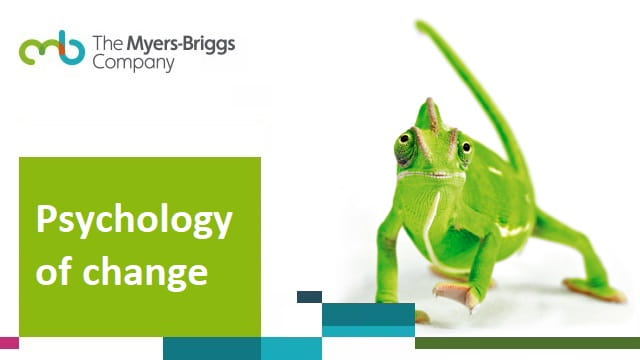
Psychology of Change
So you heard that 70% of organizational change initiatives fail or don't result in sustained change?
And you want to know how to be part of the 30% that succeed?
Join our award-winning change management experts to understand the Psychology of Change.
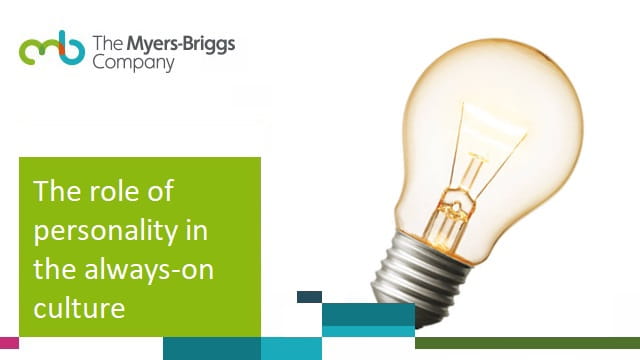
The role of personality in the always-on culture
The always-on culture means always being connected to other people and being able to communicate anytime, anywhere across the world. However, when smartphones and the internet are available 24/7, people can struggle to “switch off”.
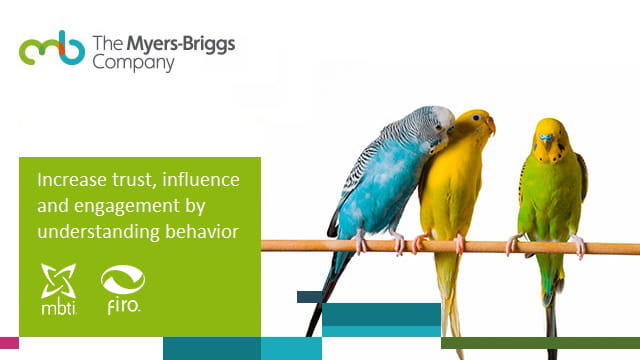
Increase trust, influence and engagement by understanding behavior
FIRO-B® and MBTI® assessments join forces to help people build trust, develop powerful relationships and reach their greatest potential.
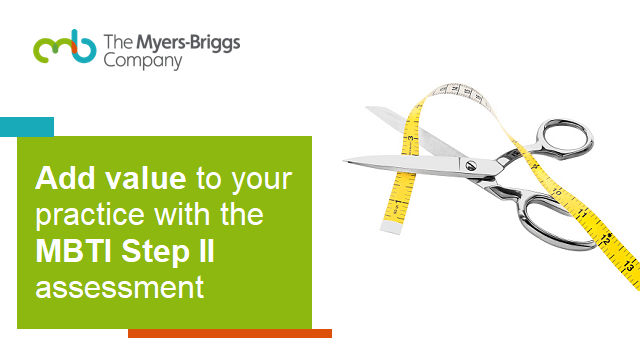
Add value to your practice with the MBTI® Step II™ Assessment
In a world filled with MBTI® knockoffs dispensing a combination of four personality-related letters it can be challenging to differentiate. As MBTI practitioners, you know you offer more, so much more value than just a 4-letter type.
